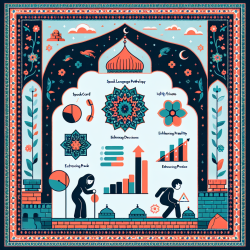Understanding the Impact of COVID-19 on Refugee Women's Postnatal Experiences
The COVID-19 pandemic has brought unprecedented challenges to healthcare systems worldwide, particularly affecting marginalized populations. A recent study titled “COVID affected us all:” the birth and postnatal health experiences of resettled Syrian refugee women during COVID-19 in Canada, provides critical insights into the unique challenges faced by Syrian refugee women during the pandemic. This research underscores the importance of understanding these experiences to improve healthcare outcomes and support systems for refugee women.
Key Findings from the Research
The study identified three main themes that highlight the challenges faced by resettled Syrian refugee women during the pandemic:
- Impacts on Postnatal Healthcare: Women experienced isolated birthing experiences due to restrictions on support people and limited access to childcare. The transition to virtual care posed additional challenges, particularly with language barriers and the lack of in-person interpretation services.
- Loss of Informal Support: Pandemic restrictions led to a significant loss of informal support networks, leaving women feeling isolated and overwhelmed with increased childcare responsibilities.
- Grief and Anxiety: The pandemic environment amplified feelings of fear, anxiety, and disappointment, as women were unable to share postnatal moments with friends and family, impacting their mental wellness.
Opportunities for Practitioners
For practitioners working with refugee populations, these findings highlight several opportunities to improve care:
- Enhance Interpretation Services: Ensure that interpretation services are readily available and efficient, recognizing the critical role they play in providing emotional support and ensuring effective communication.
- Strengthen Support Networks: Develop programs that facilitate virtual support networks and community connections to mitigate the loss of informal support.
- Address Mental Health Needs: Implement targeted mental health interventions that address the unique stressors and anxieties faced by refugee women during the postnatal period.
Encouraging Further Research
This study serves as a call to action for further research into the postnatal experiences of refugee women, particularly in the context of global crises. By understanding these experiences, practitioners can develop data-driven strategies to address healthcare disparities and improve outcomes for refugee populations.
To read the original research paper, please follow this link: “COVID affected us all:” the birth and postnatal health experiences of resettled Syrian refugee women during COVID-19 in Canada.










